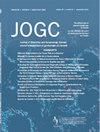探讨安大略省大专学生使用紧急避孕药的经验。
IF 2
Q2 OBSTETRICS & GYNECOLOGY
引用次数: 0
摘要
目的:本研究旨在探讨安大略省的女大专学生如何描述她们获得紧急避孕药的经历,以及她们获得紧急避孕药的方法和策略。方法:对安大略省11名于2024年1月服用紧急避孕药的女大专学生进行定性半结构化访谈。参与者年龄在18-23岁之间,包括本科生、研究生和医学院学生。使用解释现象学分析匿名抄本。结果:由于缺乏准确的信息,影响了如何获取紧急避孕药的决策。参与者使用各种方法获取紧急避孕药,包括引开自己的注意力,集体获取紧急避孕药,或让亲密伴侣购买紧急避孕药。耻辱感和判断感影响了参与者获得紧急避孕药的经历。结论:获得紧急避孕药的经历是负面的,但对于避免怀孕是必要的。在这项定性研究中,由于缺乏身体自主权、错误信息和获取途径的经历,妇女采用了其他策略来获得紧急避孕药。本文章由计算机程序翻译,如有差异,请以英文原文为准。
Exploring the Experiences of Ontario Postsecondary Students With the Emergency Contraception Pill
Objectives
This research aimed to explore how female postsecondary students in Ontario describe their experiences of obtaining the emergency contraceptive pill (ECP), and what methods and strategies they used to obtain ECP.
Methods
Qualitative semi-structured interviews with 11 female postsecondary students in Ontario who have taken ECP occurred in January 2024. Participants were 18–23 years old and included undergraduate, graduate, and medical students. Anonymized transcripts were analyzed using interpretative phenomenology.
Results
The decision of how to obtain emergency contraception pills was impacted by a lack of accurate information. Participants used various methods to access emergency contraception pills, including drawing attention away from themselves, obtaining emergency contraception pills in a group, or having intimate partners purchase emergency contraception pills. Stigma and perception of judgement influenced participants’ experiences obtaining emergency contraception pills.
Conclusions
The experience of obtaining emergency contraception pills was negative but necessary to avoid pregnancy for participants. Women in this qualitative study used alternative strategies to obtain emergency contraception pills due to the experience of a lack of body autonomy, misinformation, and access.
求助全文
通过发布文献求助,成功后即可免费获取论文全文。
去求助
来源期刊

Journal of obstetrics and gynaecology Canada
OBSTETRICS & GYNECOLOGY-
CiteScore
3.30
自引率
5.60%
发文量
302
审稿时长
32 days
期刊介绍:
Journal of Obstetrics and Gynaecology Canada (JOGC) is Canada"s peer-reviewed journal of obstetrics, gynaecology, and women"s health. Each monthly issue contains original research articles, reviews, case reports, commentaries, and editorials on all aspects of reproductive health. JOGC is the original publication source of evidence-based clinical guidelines, committee opinions, and policy statements that derive from standing or ad hoc committees of the Society of Obstetricians and Gynaecologists of Canada. JOGC is included in the National Library of Medicine"s MEDLINE database, and abstracts from JOGC are accessible on PubMed.
 求助内容:
求助内容: 应助结果提醒方式:
应助结果提醒方式:


